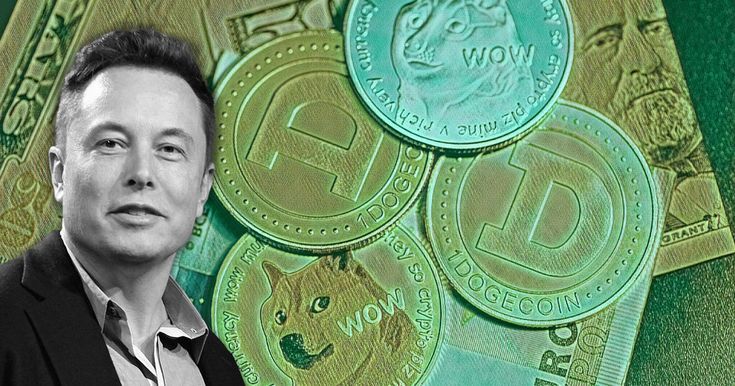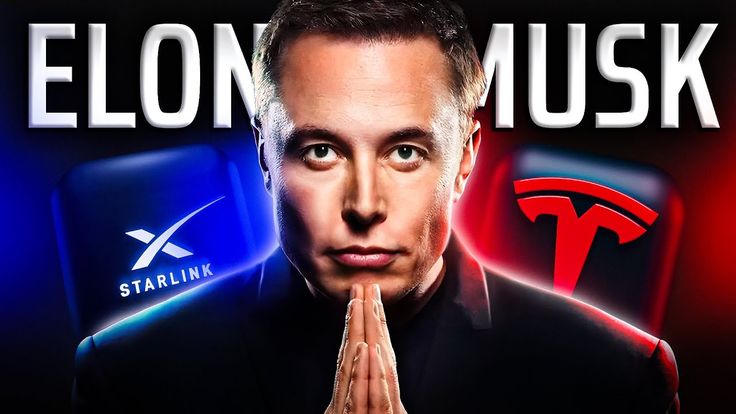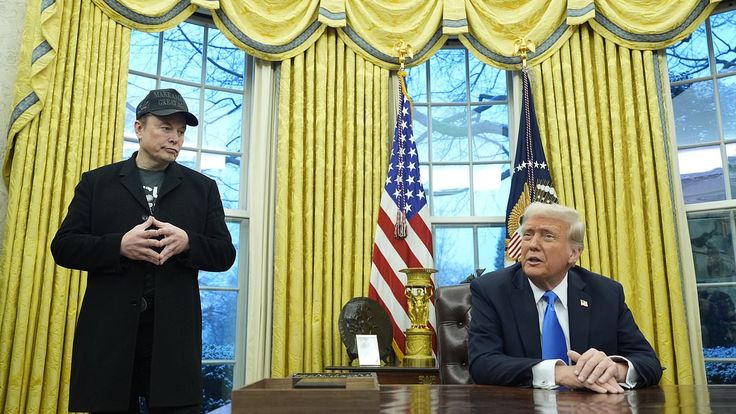Table of Contents
Billionaire entrepreneur Elon Musk has officially stepped down from his controversial role in Doge, a Trump-era advisory body tasked with cutting government spending and streamlining federal operations. Musk’s exit, though anticipated, marks a significant moment in a political experiment that has generated as much criticism as it has support.
Created by executive order, DOGE, short for the Department of Government Efficiency, was never a formal cabinet-level agency. Yet, its influence, largely due to Musk’s high-profile involvement, has been substantial. The initiative aimed to cut bureaucratic “waste,” reduce government jobs, and overhaul spending, all while operating with minimal transparency.

What Is Doge?
Despite its name, Doge is not a federally authorized department. It was established through an executive order by President Donald Trump in an effort to fulfill campaign promises of slashing the size and cost of government.
Doge’s broad mandate included everything from defunding agencies to reviewing contracts, especially those related to DEI (Diversity, Equity, and Inclusion) initiatives. The group also claimed to modernize outdated systems, particularly in government IT infrastructure. Its tenure is currently set to expire in July 2026, unless extended by a future executive order.
The group gained notoriety for its unconventional makeup, primarily comprising young tech experts, many of whom had no prior experience in public administration. Critics say this lack of institutional knowledge led to inefficiencies and overreach, while supporters argued it allowed Doge to operate without being bogged down by government red tape.

Elon Musk’s Role and Departure
When Musk joined Doge, he initially described his involvement as voluntary. However, the White House later clarified that he held an official position as an unpaid special government employee, a designation that allows part-time government service capped at 130 working days per year.
Musk became the face of Doge, frequently appearing in press events and making sweeping promises—such as saving taxpayers up to $2 trillion annually. While that number was later revised down, Musk continued to defend Doge’s mission until his departure.
His exit came shortly after he publicly criticized a massive new federal budget bill. “A bill can be big or it can be beautiful,” Musk told CBS News. “But I don’t know if it can be both.” Days later, his resignation was confirmed.
At a farewell event at the White House, President Trump presented Musk with a golden key in a ceremonial box, calling him “a national asset.” Musk, in return, praised the administration’s vision. Trump hinted Musk would remain an informal advisor, saying, “He’s not really leaving.”

What Has Doge Done So Far?
While Doge has claimed impressive financial victories—boasting a running total of $175 billion in savings—independent analysis paints a murkier picture.
A BBC investigation found that only $61.5 billion of the claimed savings were backed by itemized data, and only $32.5 billion were supported by documentation. These numbers cast doubt on the overall credibility of Doge’s financial achievements.
Key initiatives attributed to Doge include:
- Mass Layoffs and Buyouts: Over 2 million federal workers were offered “buyout” packages to leave their positions. Some terminated employees have reportedly been quietly rehired.
- Cuts to Foreign Aid: Doge heavily slashed budgets for USAID, the agency responsible for U.S. foreign assistance. Most aid programs were defunded or halted.
- Targeting DEI Contracts: Musk claimed Doge saved over $1 billion by eliminating federal contracts tied to diversity and inclusion.
- Tech Upgrades and Automation: One of Doge’s initial promises was to modernize IT infrastructure to reduce costs and increase efficiency, though detailed evidence of success in this area remains sparse.

Public and Political Reaction
Public opinion on Doge has been mixed. A CBS News poll from February suggested a majority of Americans supported the general idea of reducing government spending. However, support dropped when voters were asked about specific Doge actions or about Musk’s involvement.
According to Pew Research, 54% of Americans held an unfavorable view of Musk in early 2025, with 37% describing their view as “very unfavorable.” Even some conservatives who supported Doge’s objectives expressed discomfort with Musk’s aggressive and often controversial rhetoric.
Despite his polarizing persona, Musk was a favorite among Trump’s base. Right-wing media figures and MAGA supporters hailed his leadership at Doge, frequently crediting him with exposing “waste and fraud” in the federal government.

Legal Challenges and Criticism
From the beginning, Doge was surrounded by legal controversy. Multiple watchdog groups, unions, and attorneys general filed lawsuits accusing the body of overstepping constitutional boundaries, misusing federal authority, and acting without congressional oversight.
In one notable case, a federal judge blocked Doge from accessing sensitive Treasury Department data over privacy concerns.
Opponents also pointed out possible conflicts of interest between Musk’s business empire, particularly SpaceX and Tesla, and his role in shaping federal spending policy. Although Musk and Trump denied any wrongdoing, skepticism remained.
Democrats in Congress argued that Doge tampered with funding decisions that legally required legislative approval. Critics say the administration used vague executive powers to override Congress’s control over the federal purse.

What’s Next for Doge Without Musk?
With Musk stepping away, the future of Doge remains uncertain. The White House says it will continue its work under different leadership, but it’s clear that much of Doge’s momentum came from Musk’s media presence and disruptive brand.
Whether Doge can remain effective without its most visible figure is unclear. Some of its projects may face additional legal scrutiny or even reversal, particularly if control of the White House changes in the next election.
Still, Trump allies insist Doge’s core mission will continue “cutting waste, fraud, and abuse”—even if its methods and leadership evolve.

Final Thoughts
Elon Musk’s time with Doge was nothing short of dramatic. From bold claims and public clashes to legal battles and controversial budget cuts, his role symbolized the tension between Silicon Valley-style disruption and Washington bureaucracy.
His departure might deflate some of Doge’s momentum, but the broader conversation about government spending, efficiency, and accountability isn’t going away.
As the U.S. faces a $36 trillion national debt and mounting budget deficits, the questions Musk helped spotlight—how much government is too much, and how should we fund it—remain at the heart of America’s future political battles.
For more political analysis and global policy updates, stay informed with WorldAffair.org.
Author Profile

- Li Li, associate professor and master’s supervisor at Southwest University. B.A. in English for Education from Southwest Normal University, M.A. in English Translation and Interpretation from China Foreign Affairs University, Ph. D. in Japanese Cultural History from Nankai University (all above are in China). Also has studied at Osaka Sangyo University and Kokugakuin University in Japan and been a Fulbright visiting scholar to Western Kentucky University in US. A multidisciplinary and versatile instructor with a trilingual mastery of Chinese, English and Japanese, known for Combining foreign language teaching with history and humanity cultivation. Academic researches center on Japanese history, international relations and Western culture studies. Work experiences include teaching at Capital Normal University, Chongqing Normal University, and Southwest University. Has published multiple academic papers, translated works, authored or co-edited several textbooks and monographs; provided language services for several high-level and high-profile international events.
Latest entries
 Middle East AffairsJuly 20, 2025Will Israel Ever Face Consequences for Bombing Its Neighbours?
Middle East AffairsJuly 20, 2025Will Israel Ever Face Consequences for Bombing Its Neighbours? Energy & ClimateJuly 13, 2025Iran Conflict: Four Lessons Learned for the Oil Market
Energy & ClimateJuly 13, 2025Iran Conflict: Four Lessons Learned for the Oil Market BiopharmaceuticalsJune 30, 2025How Most-Favored Nation Drug Pricing Could Undercut U.S. Leadership in Biopharma
BiopharmaceuticalsJune 30, 2025How Most-Favored Nation Drug Pricing Could Undercut U.S. Leadership in Biopharma Middle East PoliticsJune 23, 2025Iran Launches Missile Strike on U.S. Base in Qatar
Middle East PoliticsJune 23, 2025Iran Launches Missile Strike on U.S. Base in Qatar

